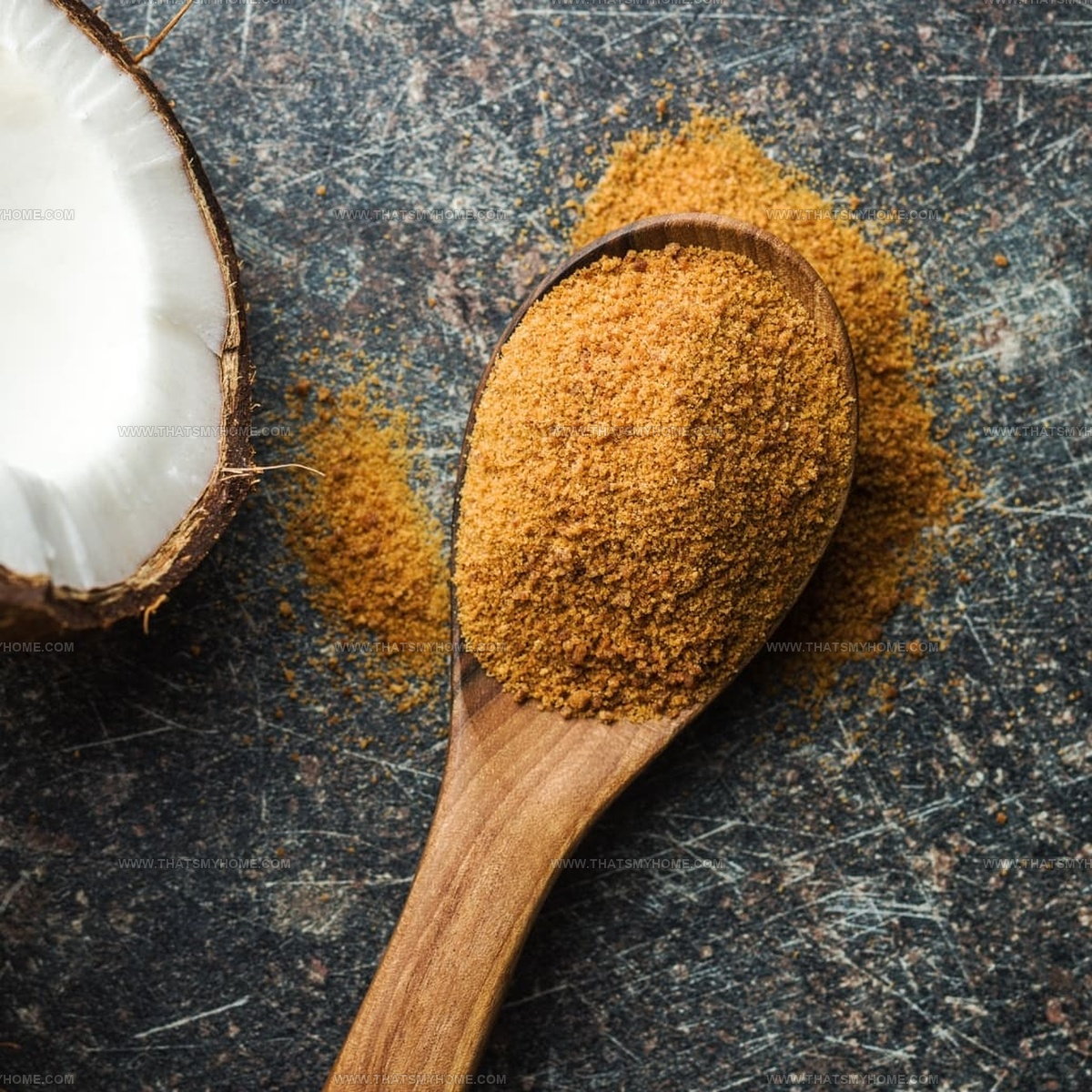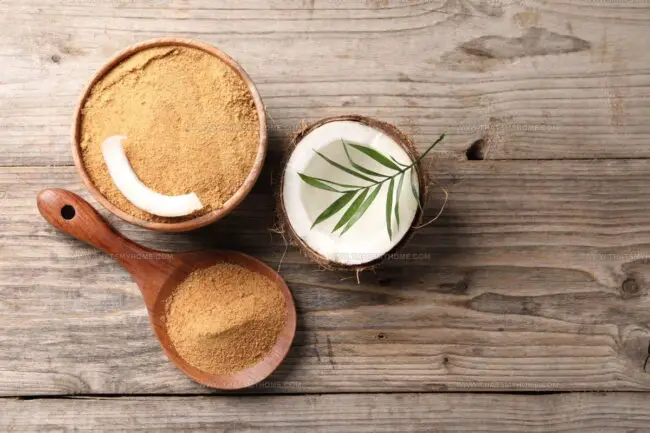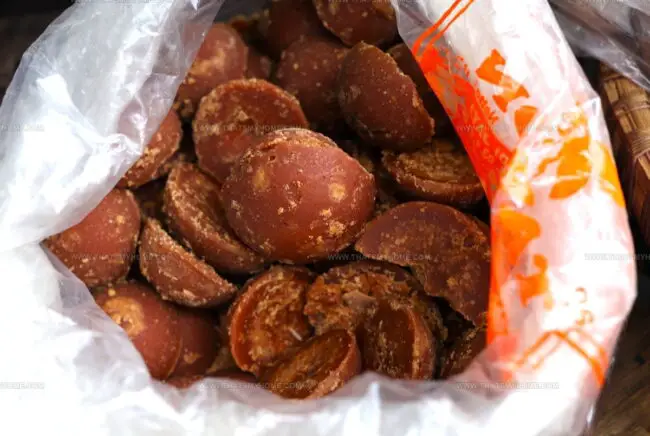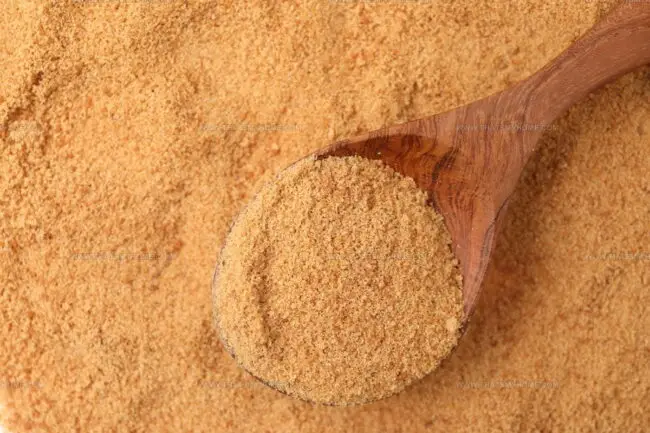13 Sweet Swaps: Delicious Alternatives to Coconut Sugar
Coconut sugar offers a natural sweetness with a lower glycemic index than regular sugar, favored in health-conscious baking and cooking.
When coconut sugar isn’t available, alternatives like brown sugar, maple sugar, or molasses can replicate its rich flavor and color.
Each substitute varies in sweetness and moisture content, influencing recipe texture and taste.
These thirteen best coconut sugar substitutes provide options for various dietary preferences and culinary uses.
Knowing how to balance moisture and flavor ensures your baked goods stay moist and delicious.
These alternatives offer natural sweetness without sacrificing quality.
Discover versatile coconut sugar replacements to suit any kitchen need.
What Are Coconut Sugar Alternatives?
Coconut sugar has a gentle sweetness with a caramel hint. Without it, you can still get a similar profile. The key is keeping the flavor soft and balanced.
Light Brown Sugar
Brown sugar stands as a fantastic alternative to coconut sugar in various recipes, offering a similar taste and consistency that works perfectly in baked goods.
The main difference lies in its slightly sweeter profile, which means you should use about three-quarters of the amount called for in your recipe.
Most cookies, cakes, and muffins turn out wonderfully with this simple swap, maintaining their intended flavor profile without much adjustment needed.
The caramel notes in brown sugar actually complement many desserts even better than coconut sugar in certain cases.
Brown sugar is also more widely available and typically costs less than specialty coconut sugar, making it a practical choice for everyday baking needs.
Agave Syrup
Agave syrup stands out as an excellent replacement for coconut sugar because of its comparable flavor profile, sweetness, and texture.
Many home bakers prefer this alternative since it contains fewer calories while offering a more subtle taste that won't overpower delicate recipes.
Finding agave syrup is generally easier than hunting down coconut sugar, with most grocery stores stocking it in their baking or natural foods sections.
For successful recipe conversions, simply use half a cup of agave syrup to replace each cup of coconut sugar called for in your favorite dishes.
The liquid nature of agave also adds moisture to baked goods, potentially creating softer cookies and moister cakes than the original ingredient would provide.
Maple Syrup
Maple syrup stands out as a fantastic substitute for coconut sugar with its similar sweetness but milder caramel notes.
The rich amber liquid works wonderfully in recipes that call for coconut sugar, though it's best to use only half the amount specified due to its concentrated sweetness.
Many bakers prefer this alternative because it blends smoothly into batters and doughs without leaving any grainy texture behind.
The natural sweetener also boasts a lower glycemic index, making it a good choice for anyone monitoring their blood sugar levels.
Maple syrup adds its distinctive woodsy flavor to baked goods, which can enhance recipes from pancakes to cookies in delightful ways.
Honey
Natural substitutions like honey work beautifully in place of coconut sugar thanks to their similar caramel-like flavor profiles.
Since honey delivers more sweetness in each spoonful, cutting back to about 3/4 cup for every cup of coconut sugar called for in recipes ensures balanced results.
The liquid nature of honey changes the texture slightly, creating a thinner consistency in finished dishes compared to the granulated coconut sugar.
Many bakers adjust their other wet ingredients accordingly when making this swap to maintain the proper moisture balance.
You appreciate this alternative because both options offer more complex flavor notes than regular white sugar while still working well in most recipes.
Date Syrup
Date syrup stands out as an excellent alternative to coconut sugar with its comparable sweetness and rich, molasses-like flavor.
This natural sweetener offers fewer calories than coconut sugar while still delivering important nutrients for your body.
Unlike the slightly gritty texture of coconut sugar, date syrup provides a smooth consistency that blends perfectly into beverages and baked goods.
For best results when making the switch, use approximately two-thirds the amount of date syrup as you would coconut sugar in recipes.
Many health-conscious bakers prefer this substitution because dates contain beneficial fiber and antioxidants that support digestive health.
Maple Sugar
Maple sugar stands out as a healthier sweetener compared to coconut sugar while delivering the same level of sweetness as regular cane sugar.
The rich, complex flavor profile of maple sugar makes it noticeably sweeter than coconut sugar, adding depth to any recipe.
Many home bakers appreciate its natural origin from maple tree sap, which undergoes minimal processing to maintain nutritional benefits.
Since the sweetness tends to be more concentrated, recipes typically require less maple sugar than coconut sugar to achieve desired results.
For best outcomes in your baking projects, start with about three-quarters of the called-for amount and adjust according to taste preferences.
Date Sugar
Switching from coconut sugar to date sugar offers impressive health benefits, primarily due to its low glycemic index which helps maintain steady blood sugar levels throughout the day.
This natural alternative packs a nutritional punch with abundant fiber and antioxidants that support your digestive system and overall wellness.
Date sugar blends seamlessly into recipes since it requires the same measurements as coconut sugar - simply use one cup for every cup in your favorite dishes.
Its subtle caramel-like flavor enhances baked goods, morning oatmeal, and homemade granola without overpowering other ingredients.
Many people find this sweet swap becomes their go-to option after experiencing the improved taste and nutritional advantages in their everyday cooking.
Sucanat
Sucanat stands out as a healthier alternative to coconut sugar, being made from dried cane juice with a higher concentration of natural minerals, vitamins, and nutrients like iron, calcium, and potassium.
The minimal processing gives it a richer flavor profile and more natural sweetness compared to coconut sugar, making your baked goods taste even better.
Many health-conscious bakers prefer Sucanat because it retains more of the whole cane sugar's beneficial properties while still providing the same level of sweetness in recipes.
For the best results, just replace coconut sugar with an equal amount of Sucanat in your favorite recipes, since they substitute perfectly at a 1:1 ratio.
This simple swap can enhance both the nutritional value and taste of your treats without requiring any complicated measurement conversions.
Palm Sugar
Palm sugar makes a fantastic swap for coconut sugar with its rich, molasses-like flavor and lower glycemic index that won't spike blood sugar as quickly.
The nutritional profile remains impressive, offering similar amounts of iron, zinc, calcium, and potassium that benefit your body in various ways.
Measurements stay the same when replacing coconut sugar in recipes, though you might notice subtle differences in the final taste of your dishes.
From sweet baked goods to savory curries, this versatile ingredient works beautifully across many cuisines without compromising flavor.
Any health-conscious home cook looking for natural sweeteners should consider adding palm sugar to their pantry for everyday cooking.
Turbinado Sugar
Substituting turbinado sugar for coconut sugar works perfectly in baking because both offer similar rich, caramel-like flavors from natural sources.
Many bakers appreciate that turbinado sugar contains no added chemicals or preservatives, making it a cleaner alternative when coconut sugar isn't available.
The slightly less sweet profile of turbinado creates balanced flavors in cookies, cakes, and other treats that don't overwhelm your taste buds.
For the best results, simply use an equal amount when replacing coconut sugar in your recipe - the 1:1 ratio makes conversion incredibly easy.
This natural sweetener also adds a pleasant crunch to toppings and crusts since its larger crystals don't completely dissolve during baking.
White Table Sugar
Substituting white table sugar for coconut sugar works well in most recipes due to their similar textures, though white sugar lacks the subtle caramel notes found in coconut sugar.
When making this swap in your favorite treats, the general rule is to use 1/2 cup of white sugar for every 3/4 cup of coconut sugar since white sugar has a more intense sweetness.
Health-conscious bakers should know that white sugar doesn't contain the same beneficial minerals like iron, zinc, and potassium that make coconut sugar a more nutritious option.
Regular table sugar processes much faster in your body, potentially causing sharper blood sugar spikes compared to coconut sugar's lower glycemic impact.
For those seeking alternatives that better preserve the original flavor profile, light brown sugar makes an excellent substitute because it contains molasses, which mimics coconut sugar's caramel undertones.
Stevia
Stevia stands out as a remarkable alternative to coconut sugar with its incredibly low calorie count and minimal carbs, making it perfect for those watching their waistlines.
This natural sweetener packs a powerful punch at 100-200 times the sweetness of regular table sugar, which means just a tiny amount delivers the same sweet taste you love.
Many health-conscious people prefer stevia because it doesn't cause blood sugar spikes like traditional sweeteners often do.
The conversion from coconut sugar isn't straightforward though - typically you'll need just one-third the amount when making the switch in recipes.
Some bakers also mix stevia with other ingredients to maintain proper volume in their creations since such small amounts are needed for sweetening.
Monk Fruit
Monk fruit offers a zero-calorie alternative to coconut sugar without causing blood sugar spikes, making it perfect for people watching their sugar intake.
Both sweeteners can replace each other seamlessly in recipes using a straightforward 1:1 ratio - just swap one cup of coconut sugar with one cup of monk fruit.
The granulated versions work equally well in baking, cooking, and beverages, allowing for consistent results in your favorite dishes.
Monk fruit actually tastes about 150-200 times sweeter than regular sugar, so some brands mix it with other ingredients to balance the intensity.
Many health-conscious cooks prefer monk fruit because it contains beneficial antioxidants called mogrosides, which give it sweetness without the downsides of traditional sugar.
How Does Brown Sugar Differ in Taste and Density from Coconut Sugar?
Brown sugar has a moist, sticky texture because of its molasses content, which gives it a rich, caramel-like sweetness.
This moisture makes brown sugar denser and easier to pack tightly when measuring. In contrast, coconut sugar is dry and granulated, with a lighter, slightly nutty caramel flavor.
Because it’s drier and less dense, substituting coconut sugar for brown sugar without adjustment can affect both sweetness and texture in baked goods.
How Does Using Maple Syrup Instead of Coconut Sugar Change Crumb Texture?
Replacing coconut sugar with maple syrup changes the liquid-to-dry ratio, which can significantly impact your crumb texture:
To keep your recipe’s structure intact, it’s important to reduce other liquids by about ¼ cup for every cup of maple syrup you use instead of coconut sugar.
Does Moisture Content Influence Coconut Sugar Swaps in Baking?
Yes, moisture content is a crucial factor when swapping coconut sugar with other sweeteners. Because coconut sugar is dry and granular, replacing it with liquid sweeteners like honey, maple syrup, or molasses requires cutting back on other liquids in the recipe to prevent batter from becoming too wet.
Conversely, if you substitute coconut sugar with a drier sugar, you might need to add a little more liquid or fat to avoid a dry, crumbly texture. Balancing moisture ensures the right consistency and crumb structure in your baked goods.





Michael Rivera
Co-Founder & Culinary Instructor
Expertise
Education
The French Culinary Institute (now part of the International Culinary Center)
Michael Rivera is a seasoned chef and culinary instructor based in San Francisco, CA. Trained in Classic Culinary Arts at The French Culinary Institute, he refined his skills in Michelin-starred kitchens, mastering classic French techniques and artisanal bread baking.
Passionate about making gourmet methods accessible, Michael co-founded thatsmyhome.com to share his expertise through interactive online lessons and innovative, plant-based recipes. He loves blending traditional techniques with modern ideas, encouraging home cooks to enjoy the art of cooking in a relaxed, fun environment.